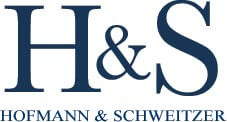Determining liability after a New York or New Jersey construction accident often comes down to one key factor: control.

This article focuses specifically on the legal responsibilities of general contractors and property owners, who have well-established duties under state law to maintain a safe work environment. However, subcontractors or third parties may also share liability, depending on the facts of your case. Additionally, you may be eligible for workers’ compensation benefits regardless of who was at fault.
At Hofmann & Schweitzer, our New Jersey and New York construction accident attorneys know how to analyze worksite injury claims and identify all potentially responsible parties to help you get the fair recovery you deserve.
Contractor's Active Control and Supervision of Work Area
Under New York Labor Law Section 200, general contractors and subcontractors who exercise supervisory control over a construction site can be liable for worker injuries caused by unsafe conditions.
Factors that indicate a contractor's control include:
- Presence of contractor personnel on-site. Regular visits by the contractor's supervisors, foremen, or safety inspectors suggest active involvement in day-to-day operations.
- Authority over safety practices. Contractors who provide worker training, conduct safety meetings, or enforce protective equipment use demonstrate control over worksite conditions.
- Coordination of work activities. Contractors who create work schedules, direct subcontractors, or coordinate job tasks maintain significant worksite control.
- Provision of equipment. If the contractor supplies machinery, tools, scaffolding, or other equipment, they likely have a duty to ensure such equipment is safe and adequately maintained.
- Addressing unsafe conditions. Contractors who are aware of safety hazards and have the authority to correct them may be liable for related injuries.
When our construction accident lawyers investigate worksite injury claims, we look for evidence of the contractor's active role in creating or controlling the circumstances that led to the accident.
Property Owner's Responsibility for Known Hazards on Construction Sites
New York law still imposes specific safety responsibilities even if a property owner isn't directly involved in a construction project. Property owners have a duty to address hazardous conditions they know about or should know about through reasonable inspection.
Examples of property owner negligence may include:
- Failure to repair structural issues. Owners who neglect to fix problems like unstable flooring, inadequate ventilation, or faulty electrical systems that later cause injury may be liable.
- Inadequate security leading to third-party assaults. Owners of buildings undergoing construction or renovation must take reasonable steps to prevent unauthorized access by individuals who may threaten workers’ safety.
- Negligent selection of contractors. If an owner hires a contractor with a poor safety record or inadequate insurance, they may bear responsibility for resulting worker injuries.
- Providing defective equipment. Owners who supply unsafe machinery or tools for contractor use could be liable for related worker injuries.
Determining a property owner's knowledge of potential hazards often requires extensive investigation.
Protection for Construction Workers Under New York and New Jersey Labor Laws
Some construction accidents have a more straightforward path to liability under New York and New Jersey law. These labor laws impose strict liability on contractors and property owners for injuries related to elevation risks and safety rule violations.
NY Labor Law Section 240: Falls and Falling Objects
New York Labor Law Section 240, known as the "Scaffold Law," provides special protections for construction workers exposed to elevation-related risks, such as falls. Under this statute, contractors and property owners are strictly liable for injuries caused by improper or inadequate:
- Scaffolding
- Ladders
- Hoists
- Harnesses and other safety devices
- Protection from falling objects
Essentially, if a contractor or property owner fails to provide proper elevation-related safety equipment and a worker suffers injury as a result, liability is automatic. The worker doesn't need to prove negligence.
NY Labor Law Section 241: Safety Rule Violations
New York Labor Law Section 241 requires contractors and owners to comply with specific safety rules in construction, excavation, and demolition work. These rules, found in the New York Industrial Code, cover requirements like:
- Trench shoring and bracing
- Safe material handling
- Proper lighting and ventilation
- Guarding of power equipment
- Availability of first aid kits and other safety devices
If a contractor or owner violates these safety rules and a worker suffers an injury, the worker may have a valid claim under NY Labor Law Section 241. The key is connecting the safety violation to the injury.
New Jersey Labor Laws
New Jersey also has strong labor laws to protect construction workers from dangerous job site conditions. The state’s regulations lay out comprehensive requirements that employers must meet to keep work environments safe and compliant.
In many instances, New Jersey’s protections for construction workers go beyond those offered in New York, providing broader safeguards against potential workplace hazards.
Protect Your Compensation After a Construction Accident
If you've been hurt in a construction accident in New York or New Jersey, you may have multiple options for seeking the compensation you need and deserve. In addition to workers' compensation benefits, you may have valid legal claims against negligent third parties like contractors, subcontractors, and property owners.
At Hofmann & Schweitzer, our construction accident attorneys thoroughly investigate each case to identify every potential source of liability and recovery. We have a proven record of results for injured New York and New Jersey construction workers.

